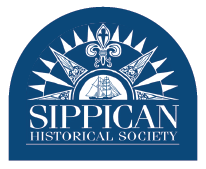In Cornelia (Lee) Dougall’s third research and remembrances of Marion’s 20th Century women, we remember Thelma Sequiera, Kathy Saltonstall and Beatrice Pires.
Thelma (Benner) Sequeira (1909-1998)
 Born Thelma Benner in Liberty, Maine, Thelma finished nursing school and moved to Marion to take care of her uncle. She met Lionel Sequiera at a dance in Rochester and they married in 1932.
Born Thelma Benner in Liberty, Maine, Thelma finished nursing school and moved to Marion to take care of her uncle. She met Lionel Sequiera at a dance in Rochester and they married in 1932.
Thelma and Lionel had three daughters: Thelma, Elizabeth and Eleanor. Prior to Thelma’s full-time work with the Marion Visiting Nurse Association (MVNA) she worked part time. As the MVNA needs increased, Thelma started to work full-time from 1946 until 1974.
As local doctors Benjamin Tilden, MD and Raymond Baxter, MD were called up to serve during the war, the need for the MVNA staff increased. As this was also post economic depression era, money was an issue. The MVNA gave up the building they had been using. Thelma generously agreed to work out of her families home.
This and additional information about the MVNA can be found in the 1984 Marion Town Party Booklet honoring 70 years of the contributions of The Marion Visiting Nurse Association.
Thelma was on the Board of Directors for the MVNA from 1964-1967.
In addition to her full-time nursing responsibilities, Thelma was a substitute nurse at both the Sippican and Point Road schools. She also helped with fund raising for Tobey Hospital in Wareham.
In 1969, at the Town Meeting, there was a resolution honoring Thelma as Marion Woman of the Year – the first time such a resolution was presented. It passed with a standing ovation. She was given a silver bowl in recognition and appreciation for her many years of devoted service as a town nurse.
In 1974, Thelma was honored by the Marion Visiting Nurse Association with the distinction of “Thelma B. Sequeira Day” in appreciation of all she had done while a part of the MVNA.
Katharyn (Watson) Saltonstall
Born in Brookline in 1912, Katharyn (Kathy) Watson attended Radcliffe College, where she met William G. Saltonstall. They married in 1931, building a family of three daughters and two sons. From 1946 until 1963, Kathy served many roles as the wife of the Philips Academy principal. The family spent the school year in Exeter, NH and the summers in Marion.
 In 1963, President Kennedy asked Bill to serve in the development of the Peace Corps. Peace Corps volunteers work along side citizens of other countries to create and build education or development community projects. Kathy and Bill went to Nigeria, retiring in Marion upon their return. In “Small Bridges to One World” (1986), Kathy wrote about their experience.
In 1963, President Kennedy asked Bill to serve in the development of the Peace Corps. Peace Corps volunteers work along side citizens of other countries to create and build education or development community projects. Kathy and Bill went to Nigeria, retiring in Marion upon their return. In “Small Bridges to One World” (1986), Kathy wrote about their experience.
A warm, caring, down to earth person, Kathy was very devoted to her family and community. She had a quiet presence. As early as the 1970’s, she could be regularly seen with a trash bag picking up litter on Point Road.
Kathy was a member and supporter of The Sippican Lands Trust, Marion Natural History Museum, and The First Congregational Church of Marion. Curious by nature, she would attend local presentations on many topics.
Kathy served on several Marion Committees:
- Conservation Commission 1970-1974
- Tri-Town River Committee-Alternate 1973-1974
- Consultant to the Conservation Commission 1974-1975
- Conservation Commission Honorary Member 1977-1986
Beatrice (Pina) Pires
Bea (1922 – 2022) worked at the Hingham Shipyard during World War II for the US Navy. She was a long time supporter and fundraiser for the March of Dimes. That organization was started in 1938 by Franklin D. Roosevelt as a fundraiser related to infantile paralysis (polio). Once the vaccines essentially eradicated polio in the United States, the focus changed to supporting babies and mothers.

In an interview by Judith Rosbe for the Sippican Historical Society Oral History Project, Bea describes growing up poor but having enough to eat and having what the family needed. A favorite family memory growing up was the “Saturday Night Kitchen Dances.” Her father played the accordion, their neighbor, Harry Rose played the violin. Along with “Dingo” Rose’s tambourine and “Casemero’s” guitar, there was music and dancing after a pot luck dinner.
Later she enjoyed raising her family in Marion, cooking and attending Cape Verdean events. Bea was a home caregiver for many Marion families. She was so good at her job that Dr. Baxter would refer his patients to Bea for home health care needs. She was confident, kind, trustworthy, and capable of providing individual needs to the many Marion people in her care.
Bea worked as a Registrar of Voters for the Town of Marion. She was an active member of the Benjamin D. Cushing VFW Post #2425 Woman’s Auxiliary in Marion and was a Past President.
Beatrice Pires lived to be 100 years old. The SHS interview was just before her 99th birthday. Other than having some hearing difficulty, Bea demonstrated a very intact memory for remembering many times in her very long and successful life.
If you’d like to read more about 20th Century Marion women, check out the Marion Girls Friendly Circle and more stories.

